

LGBT-Sensitive Care and Services for Seniors
Senior Home Care Agency Supports LGBT Elders
Right at Home Marin proudly supports the LGBT+ community and can put you at ease with a care plan that will put you at ease.
In a University of Washington study, researchers concluded that 2.7 million people age 50 and older identify as lesbian, gay, bisexual or transgender, and that the number is expected to double by 2060. As someone who has been working in aging care since 1995, Paul Blom asked his fellow senior care service providers in Minnesota, “Do you have any sense that there is a unique set of needs and barriers regarding the older LGBT community?”
Blom and his husband Bob White jointly own senior home care agency Right at Home in the Twin Cities. They are both involved in the coordination of their clients’ care; Blom thinks that makes it easier to open the conversation with their clients on whether they are a part of the LGBT community.
But for his peers in the healthcare industry, no one knew what he was talking about when he asked that question eight years ago. So, he asked again in a survey, “Would you be willing to learn more?” And the answers he received were positive.
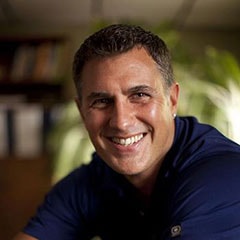
“The training is not about how to take care of someone differently, it’s about understanding what makes older LGBT folks feel the way they feel and how we can help them feel comfortable. We want to help them seek the help that they need.”
-Paul Blom, Right at Home Twin Cities
READ MORE: We want the LGBT elders to see us as a welcoming place.
Gay and Gray: Working With LGBT Older Adults
The survey resulted in the creation of a nonprofit organization, Training to Serve, that offers LGBT elder care training and a one-hour curriculum—Gay and Gray: Working With LGBT Older Adults—that helps senior service providers support welcoming services for the older LGBT generation.
This spring, Blom introduced the curriculum to the e-learning platform of the Right at Home network, allowing caregivers and staff members within the franchise organization to learn more about inclusive care.
“As an organization, we want the LGBT seniors to see us as a welcoming place,” says Blom. “The training is not about how to take care of someone differently, it’s about understanding what makes older LGBT folks feel the way they feel and how we can help them feel comfortable. We want to help them seek the help that they need.”
READ MORE: LGBT History in America: Understanding the Unique Needs of LGBT Elders
Culturally Competent Care for LGBT Seniors
Joyce Barocas and Stephanie Humphries, owners of Right at Home of Lower Manhattan (New York) and Cedar Rapids (Iowa), respectively, feel similarly to Blom and think that sensitivity training is necessary. They both reached out to SAGECare last year to arrange for their staff members and caregivers to complete a cultural competency training focused on person-centered care for LGBT seniors.
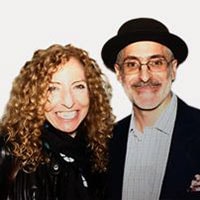
“There is clearly a need for this kind of sensitivity training, and I don’t think many other agencies are doing this yet. We like to think that we’re ahead of the curve!”
-Joyce Barocas, Right at Home Lower Manhattan
READ MORE: Don’t make assumptions. Listen mindfully and be inclusive.
SAGE (Services & Advocacy for GLBT Elders) is the country’s oldest and largest nonprofit dedicated to improving the lives of LGBT seniors. SAGECare was born out of a request from the federal government to help create a national training program for the National Aging Network; it recognizes that personal histories may impact the way LGBT seniors interact and communicate with service providers. SAGECare training, therefore, aims to provide clarity to caregivers, so they have more empathy for and feel more secure serving LGBT individuals.
“Even though New York City is pretty LGBT-friendly, discrimination can still be lurking within the senior community,” says Barocas. “Many of the older LGBT people we serve were forced to be silent about who they were for many years—a sense of distrust and fear is just ingrained in them.”
Humphries stated that incidents about LGBT elders being bullied at senior living facilities and nursing homes motivated her to complete the training.
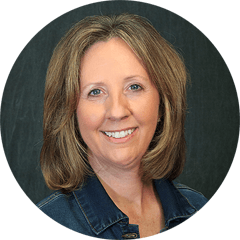
“My employees take care of the elderly. The relationships established between caregivers and clients can be very personal—it can be helping someone bathe or change clothes—so knowing how to communicate with sensitivity is important.”
-Stephanie Humphries, Right at Home Cedar Rapids
Creating a Welcoming Community for LGBT Elders
Staff and caregiver training aside, Right at Home owners across the country are involved in various initiatives to promote a welcoming community for LGBT elders as well. In Westboro, a Boston suburb, Shelly Marshall plays an active role on the LGBT advisory team of a designated Massachusetts Aging Services Access Point.
“Even though we are only 30 miles west of Boston, the LGBT community and resources are a world of difference,” says Marshall. “If you are in Boston, it’s a much more active, engaged, lively and true LGBT community. But in the suburbs of Boston, the community is invisible.”
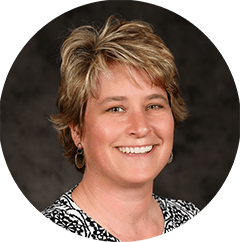
“When you know them personally, you understand generationally how they have different views, concerns and personal experiences as a part of the community.”
-Shelby Marshall, Right at Home Eastern Worcester County
READ MORE: LGBT Aging: Community Resources and Support in a Boston Suburb
Marshall and the other members on the LGBT advisory team collaborate with a project team and a workgroup to identify the needs of LGBT elders in the Boston Metro West area, offer training to senior service providers, and develop a resource guide for LGBT seniors.
In West Hollywood, California, Doug Dickstein and his Right at Home office partners with St. Barnabas Senior Services, a nonprofit that helps older adults in Greater Los Angeles age with dignity, to serve LGBT individuals living in Triangle Square Senior Apartments. Dickstein is also planning to start training his caregivers on inclusive care for LGBT elders this July.
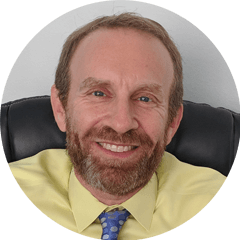
“There is a fairly large percentage of LGBT seniors who don’t have kids, so if their partner passes away, they may not have a traditional, immediate-family support system that others might have and this can lead to a sense of isolation.”
-Doug Dickstein, Right at Home Glendale
READ MORE: “A lot of LGBT seniors lack family support and feel isolated.”
Similarly, the owner of a Chicago Right at Home office, Heather Lantry, works closely with a local health and aging service company to provide LGBT elder care education and training for her caregivers.
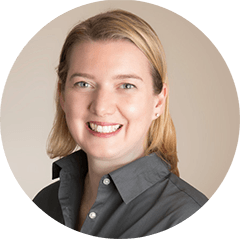
“A few years ago, I saw a presentation about the healthcare experience of aging LGBT community members at the Center on Halsted (a community center in Chicago that focuses on improving the health and well-being of LGBT individuals). I felt upset hearing about how frequently LGBT elders were chased back into the closet when they go into skilled care facilities, short-term rehabilitation centers and other healthcare institutions—that motivated me to look into training my caregivers on inclusive care.”
-Heather Lantry, Right at Home Chicago Metro